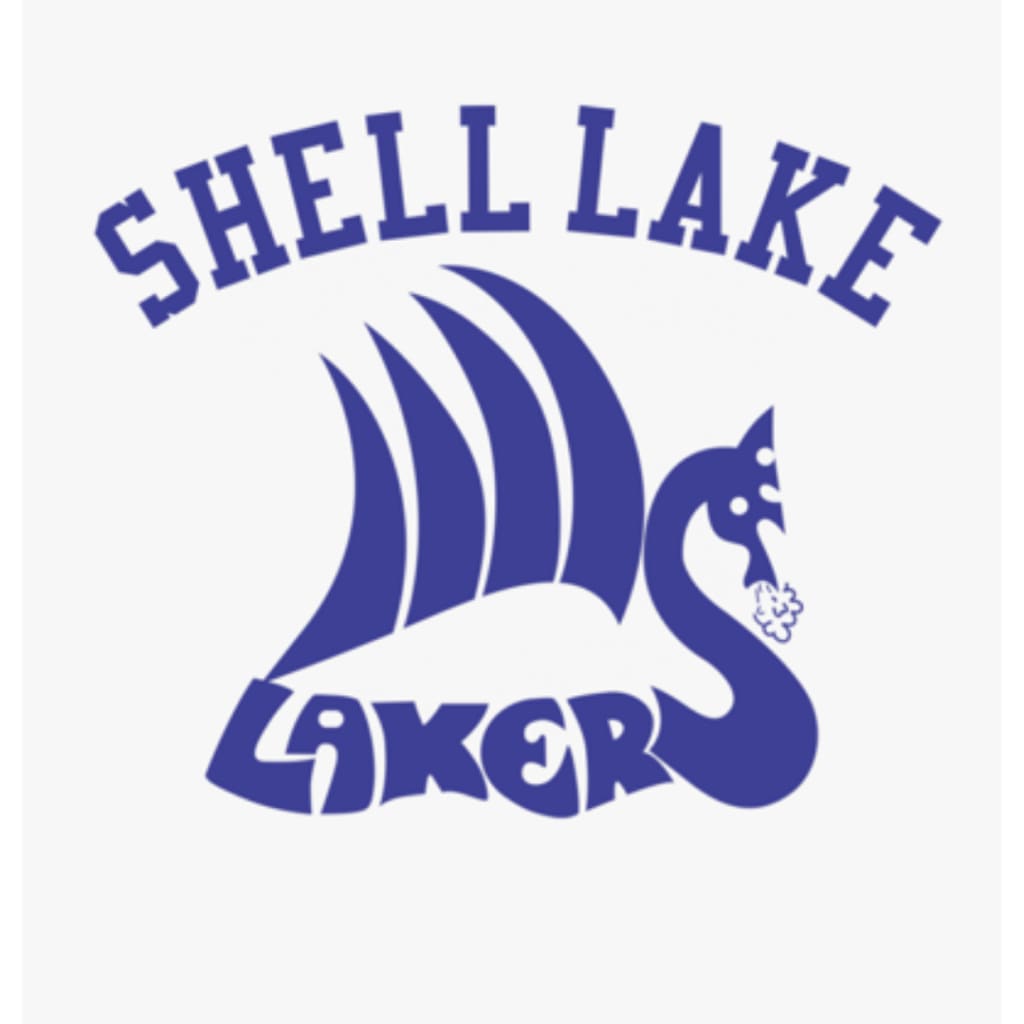Shell Lake, Wisconsin: What's in a Name?
How Shell Lake Got Its Name

Place names are often what we claim to be an obvious demarcation of an area. Usually descriptive toward a physical attribute, they can also tip the hat toward the unseen. Some names are honest, some are hopeful, many are ironic but those are fun too. Luck, Wisconsin, for instance or Nimrod, Minnesota, come to mind. Ware, Massachusetts (named after a fish trap- at one point was called the Manour of Peace), is a stone's throw from where I live in Belchertown, Massachusetts (named after a dude). This place used to be called Cold Springs; sounds nice, but tuns out that was just a lazification of Cowles Springs (another dude). Grasse Hill was in the running way back, I digress.
With placenames in mind, I went looking for the reason my hometown was named the way it is today: Shell Lake, Wisconsin. I had always assumed it was named in relation to the lovely contour our body of water displays from above. The Shell Lake website claims it was named for the freshwater bivalve found on the shores, but that conflicts with the book that we both reference. I have yet to get to the bottom of that, but it turns out our dear lake has gone through more than one name change and you’ll be shocked to learn some of the details I uncovered on my search.
Many of the references are directly from a book called, The Story of Shell Lake, by A.L. Stouffer. Published by the Washburn County Historical Society in 1961, this volume was compiled by the long-time resident and editor of the town newspaper. Stouffer lived in near Shell Lake since 1886 and held every job in town between the logging companies, railroads, and municipal governance. The book states numerous times that it was void of fish life and chronicles the ongoing attempts at stocking the lake with fish.

Fishless in Frog Lake
Shell Lake is widely known for its clarity of water and abundance of fish life, which is why I was shocked to learn, upon European encroachment, there were NO FISH in Shell Lake. According to Stouffer the lake was also void of rice and clams, an oddity of sorts for the area. Wisconsin DNR, would you like to weigh in on this? (The Spooner Fish Hatchery in the next town over makes a lot more sense after reading this book.)
Frog’s Navel or Frog Lake is the previous Ojibwe name for the lake. Mokokesese Sahkiagin is the exact term referenced in the book, though I have not been able to verify the translation. It bares to reason, if there were none of the regular wildlife, the overwhelming peepers in the south bog would be of particular note. Perhaps due to the lack of three main foodstuffs there was little settlement on Frog Lake of old. Maybe the fish had already been fished out?
Regardless, everything changed in 1871 when the Northern Wisconsin Railway Company was incorporated with the purpose of constructing a road from St. Croix to Lake Superior. They set their sights on Frog Lake for the thoroughfare and life was never the same again. By 1880 the track was down, and the town was officially going by Shell Lake.
So, why the name change? Having zero understanding of the minds of the individuals who named it thusly, but having extensive knowledge of people, business, and history, I wager Frog Lake was not sexy enough to sell. New towns needed a bit of advertising and there was no need to make moving to the wilderness more difficult. Interesting to note, there are also maps in the same era where Shell Lake is listed as Summit Lake; there is also the old Summit House referenced in the book, so there were clearly discrepancies. I have a hunch it all comes down to $. What is a better sell to the ear and the mind, Shell Lake or Frog Lake? Shell Lake or Summit Lake? Where would you rather buy lumber from?
The Crescent, the Railroad, and the Mill
At the same time as the government was building railroads, businessmen and politicians were busy buying up the acreage where the tracks were mapped in hopes of utilizing the new transport methods. At the onset, this meant lumber barons for our neck of the woods. Fredrick Weyerhaeuser and the like bought interests around the lake and swiftly the Shell Lake Lumber Company was formed. It was thanks to them there was a very popular craft on the waters of Shell Lake, that may or may not be the reason behind our namesake Laker.
My love for the blue and gold runs deep, these are my colors; all others are runners-up. I attended Shell Lake High School with the notion our mascot was a Sea Dragon/Viking Warship of sorts. Long before the NBA, ‘lakers’ was the nominal term for a lake-going vessel doing work. Our ‘laker’ was in the form of a steamboat named ‘The Crescent’ that was employed by the Crescent Springs Railroad, which was created by the Shell Lake Lumber Company. Why did a lumber company already on railroad line need a boat? Softwoods!
The Crescent’s primary job was to float logs across the water and make booms to hold them till the mill could cut them. The boat ran about the lake fetching errant logs, pushing, and priming timbers for years. Ever on the watch, it was involved in several human and and animal rescues over the years, all part of the duties of a Laker. Sadly, after the mill left town, the vessel was abandoned and beached on the south end till only the anchor remained. Its name lives on in the ferocity of our games and capacity of pride in our hometown.
It should be stated there are numerous possible inspirations for 'Lakers', this is one.
Conclusion:
I am now more convinced than ever that Shell Lake was a backroom deal, hopefully argued about, then decided over a glass of milk. Any guesses on what it will be called next?
Read Next: Book Review - The Story of Shell Lake by A.L. Stouffer
About the Creator
Jordan J Hall
I write Historical and Speculative Flash Fiction. Nature and society's underbelly are the focus of my work. Read my debut collection of short stories, Mammoth, Massachusetts and check out jordanjhall.com for more.






Comments
There are no comments for this story
Be the first to respond and start the conversation.